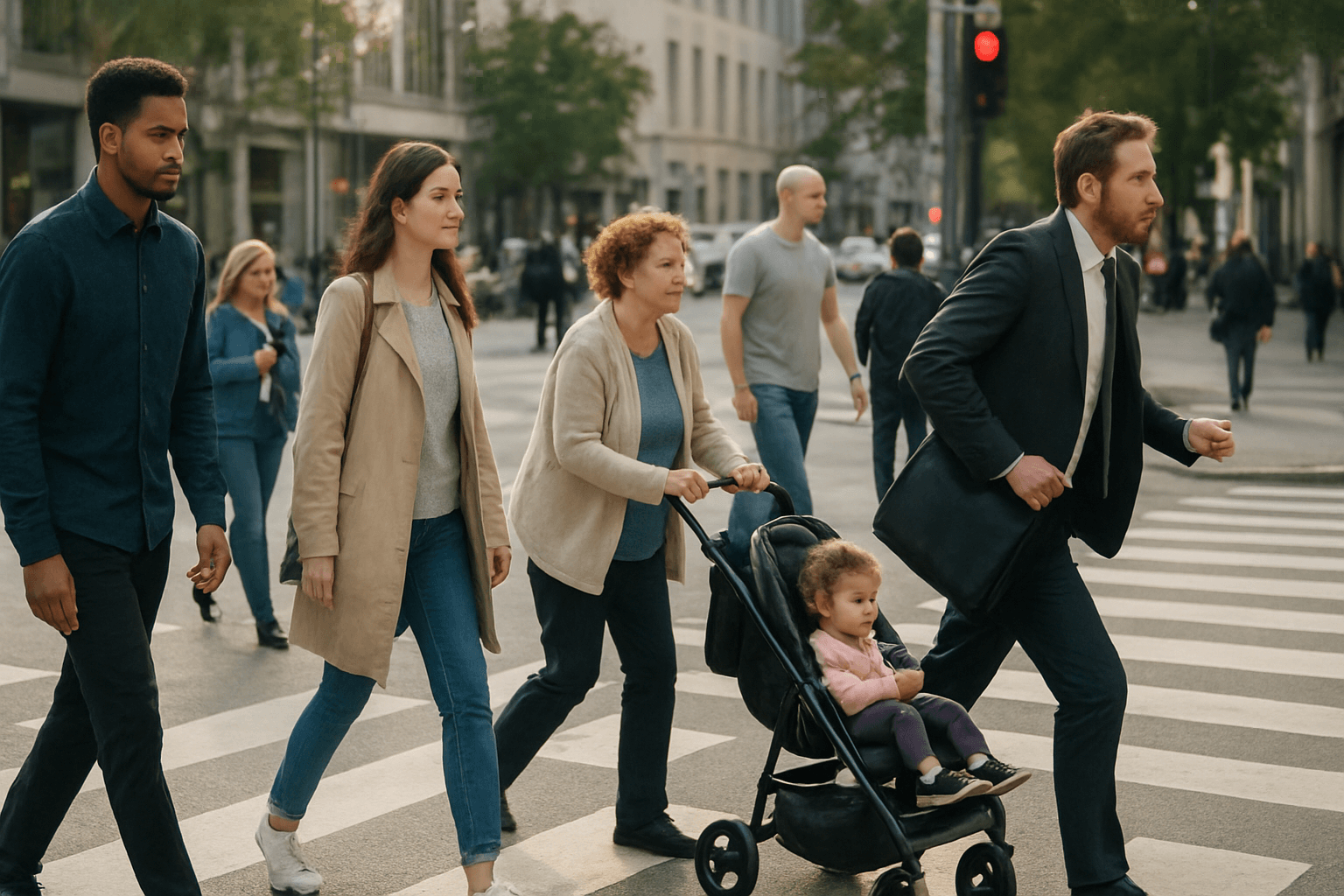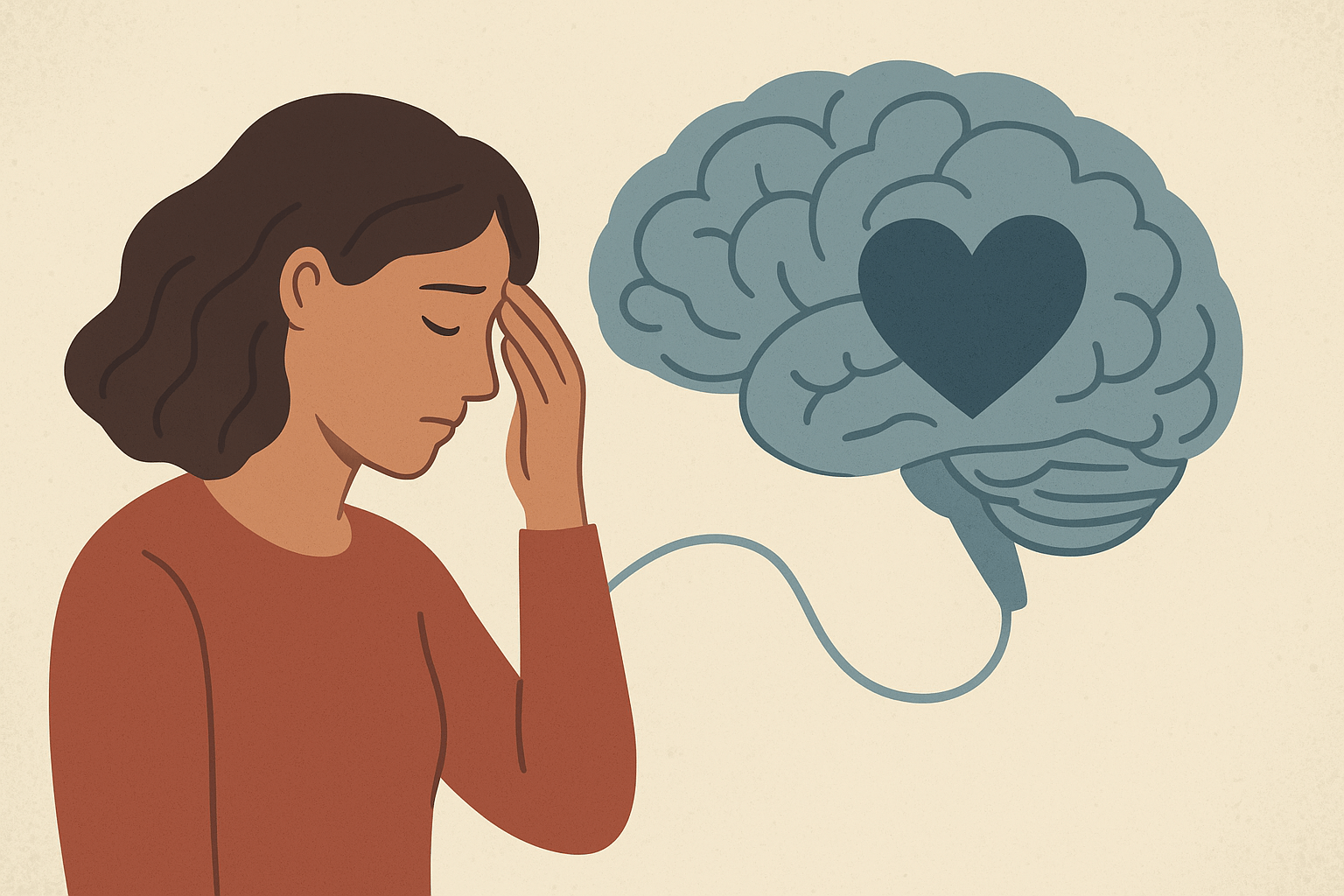Have you ever stopped to think about how we all experience our day in a different way? That profound image of a busy highway—with some people heading to their dream job, others rushing to the hospital, students anxious about college rejections, and countless souls navigating their unique journeys—perfectly captures this universal truth.
Different daily experiences shape who we are, yet we often forget that everyone around us is fighting their own battle, celebrating their own victory, or simply trying to survive another day.
Understanding How We All Experience Our Day Differently

The Psychology Behind Varied Daily Experiences
Subjective reality is a fascinating concept. While we might all wake up on the same Wednesday morning, our individual daily perspectives couldn’t be more different. According to psychological research, our experiences are filtered through:
- Personal circumstances: Financial situations, health status, and relationship dynamics
- Emotional state: Mental health, stress levels, and current life challenges
- Life stage: Whether you’re a student, parent, retiree, or career professional
- Cultural background: How our upbringing shapes our daily interpretations
- Past experiences: How previous events color our current perceptions
The Highway Metaphor: A Perfect Illustration
The meme beautifully illustrates how everyone’s day differs. On that same stretch of road:
Some are going to their first day at their dream job, hearts racing with excitement and possibility. They’ve worked years for this moment, and today represents the culmination of countless sacrifices.
Others are rushing to the hospital, gripped by fear and urgency. Their only thought is reaching their loved one in time, making every red light feel like an eternity.
Students are reeling from college rejections, their carefully constructed plans crumbling. That car ride might be filled with tears, disappointment, and the daunting task of reimagining their future.
Parents are leaving after work, exhausted but grateful, counting down the minutes until they can hug their children.
Someone just got accepted to their dream college, barely containing their joy as they drive, already calling everyone they know to share the news.
The Empathy Gap: Why We Forget Others’ Different Experiences
The Self-Centered Perspective Problem
Humans naturally view the world through a self-centered lens—not out of malice, but because our own daily struggles and triumphs demand our immediate attention. This creates what psychologists call the “empathy gap.”
When someone cuts us off in traffic, we rarely consider that they might be:
- Racing to say goodbye to a dying parent
- Running late to a job interview that could change their life
- Experiencing a panic attack and trying to get home safely
Instead, we react with anger, forgetting that everyone experiences life uniquely.
Breaking Down the Barriers to Understanding
To truly grasp how we all experience our day in a different way, we need to:
- Practice radical empathy: Assume positive intent and imagine alternative narratives
- Question our assumptions: Challenge the stories we tell ourselves about others’ behaviors
- Remember our own difficult days: Recall times when we needed grace and understanding
- Acknowledge complexity: Recognize that people contain multitudes and contradictions
Real-Life Examples of Different Daily Experiences
Morning Routines: The Same Time, Different Worlds
At 7:00 AM on any given day:
The New Parent has been awake for three hours already, surviving on broken sleep, measuring their day in two-hour increments between feedings. Their daily experience revolves around keeping a tiny human alive.
The Corporate Executive is already on their second coffee, reviewing reports for a presentation that could make or break their quarter. Their stress is real, even if different from the new parent’s.
The Night Shift Worker is finally heading to bed, their “morning” actually marking the end of their workday. Their perspective on daily life is literally inverted from most people’s.
The Unemployed Job Seeker is waking with anxiety, facing another day of applications and rejection emails, wondering when their luck will change.
The Retiree is savoring their coffee, perhaps missing the structure work provided, or maybe relishing their hard-earned freedom.
Afternoon Realities: Diverging Paths
That same afternoon traffic jam means completely different things:
- Career milestone: Someone celebrating a promotion
- Financial devastation: Someone who just lost their job
- Health crisis: Someone receiving a difficult diagnosis
- Personal triumph: Someone leaving their first therapy session
- Academic pressure: A student dreading going home with bad grades
- Simple gratitude: Someone just happy to be alive another day
The Impact of Recognizing Different Daily Experiences

Building a More Compassionate Society
When we truly internalize that we all experience our day in a different way, profound shifts occur:
Reduced road rage and public conflict: Understanding that aggressive behavior often stems from desperation rather than malice
Increased patience: Recognizing that the slow cashier might be working three jobs or dealing with a personal crisis
Better relationships: Acknowledging that your partner, colleague, or friend is navigating their own complex daily challenges
Improved mental health: Feeling less alone when we remember others struggle too
Professional Applications
In the workplace, understanding diverse daily experiences creates:
- Better management: Leaders who recognize employees’ varying life circumstances
- Enhanced team dynamics: Colleagues who support rather than judge each other
- Reduced burnout: Environments where people feel seen and understood
- Increased productivity: Teams that work together rather than against each other
Scientific Research on Subjective Experience
The Neuroscience of Perspective
Recent neurological research shows that individual daily perspectives are shaped by:
Brain chemistry: Neurotransmitter levels affect how we interpret identical situations. Someone with optimal serotonin levels might see a challenge as exciting, while someone with depleted levels sees it as overwhelming.
Neural pathways: Our brains develop patterns based on repeated experiences, creating unique daily interpretations of similar events.
Stress response systems: How our bodies react to stressors varies dramatically, meaning the same traffic jam could be mildly annoying to one person and panic-inducing to another.
Cultural Differences in Daily Experience
Cross-cultural psychology reveals how deeply culture shapes our daily life perspectives:
- Individualistic vs. collectivist societies: How we prioritize personal versus community needs
- Time perception: Whether we view time as linear or cyclical affects our daily stress
- Success definitions: What constitutes a “good day” varies enormously across cultures
- Emotional expression: How we process and share our daily experiencesdiffers globally
Practical Strategies for Embracing Diverse Experiences
1. The “Traffic Exercise”
Next time you’re on the road, practice this mindfulness technique:
Look at each car and create a positive story: “That person is going to surprise their partner with flowers” or “They’re heading to volunteer at a shelter.” This reframes your perspective and builds empathy muscles.
2. The Gratitude-Compassion Balance
Keep a daily journal with two sections:
- What made my day unique: Your personal daily experiences
- Whose day might have been harder: Consider others’ struggles
This practice keeps you grounded in both self-awareness and empathy.
3. The “Pause Before Judging” Rule
When someone’s behavior triggers you, pause and think:
- What might they be going through?
- Have I ever acted similarly when stressed?
- What grace would I want if our positions were reversed?
4. Seek Diverse Stories
Actively consume content from people with different daily experiences:
- Read memoirs from various backgrounds
- Follow social media accounts from different demographics
- Engage in conversations with people unlike you
- Listen to podcasts featuring diverse voices
The Digital Age: Amplifying Our Differences
Social Media’s Distortion Effect
Social media has complicated how we experience and share our days:
The highlight reel problem: We compare our behind-the-scenes to others’ highlight reels, forgetting that everyone’s daily reality includes struggles they don’t post.
The validation trap: We begin measuring our daily experiences by likes and comments rather than genuine satisfaction.
Echo chambers: We surround ourselves with people who have similar daily perspectives, limiting our empathy development.
Finding Authentic Connection Online
To use digital platforms for genuine understanding:
- Share both struggles and successes
- Engage meaningfully rather than performatively
- Follow accounts that challenge your perspective
- Remember that online personas rarely reflect complete daily realities
Teaching Children About Different Experiences
Building Empathy Early
Children naturally develop self-centered perspectives, but we can cultivate empathy:
Story-based learning: Use books and media showing diverse daily experiences
Role-playing exercises: “How might your classmate feel if…” scenarios
Model empathy: Narrate your own empathetic thinking: “That driver seems in a hurry—I hope everything’s okay”
Validate their feelings while expanding perspective: “I know you’re frustrated, and maybe your teacher is having a hard day too”
Age-Appropriate Conversations
Young children (5-8): Focus on basic emotions and immediate experiences
Tweens (9-12): Introduce complex scenarios and multiple perspectives
Teenagers (13+): Discuss systemic issues, privilege, and societal factors affecting daily experiences
The Philosophy of Shared Humanity

Ancient Wisdom on Universal Experience
Different daily experiences isn’t a new concept—philosophers have explored this for millennia:
Buddhist teachings: The concept of suffering being universal yet uniquely experienced
Stoic philosophy: Marcus Aurelius wrote about understanding that everyone acts according to their own internal logic
Ubuntu philosophy: “I am because we are”—recognizing our interconnected yet individual journeys
Modern Applications of Timeless Wisdom
These ancient insights remain relevant:
- Mindfulness practices: Being present to both our experience and others’
- Compassion meditation: Actively wishing well for all people, including those we find difficult
- Perspective-taking exercises: Deliberately imagining others’ daily realities
Overcoming Barriers to Understanding
Why It’s Hard to Remember Others’ Experiences
Several psychological barriers prevent us from recognizing how we all experience our day in a different way:
Cognitive load: Our brains are already processing our own complex lives
Fundamental attribution error: We attribute others’ behavior to character rather than circumstances
Just-world hypothesis: We want to believe people get what they deserve, which prevents empathy
Emotional self-protection: Acknowledging others’ pain can feel overwhelming
Practical Solutions
Structured reflection time: Schedule moments to consider others’ perspectives
Empathy mentors: Find people who model this awareness and learn from them
Therapeutic support: Process your own experiences so you have capacity for others
Community involvement: Direct exposure to diverse daily experiences builds natural empathy
The Workplace Dimension
How Different Daily Experiences Affect Performance
In professional settings, failing to recognize varied daily realities causes:
- Unfair performance evaluations: Not accounting for personal circumstances
- Burnout culture: Expecting everyone to function at peak capacity always
- Discrimination: Penalizing those whose life circumstances differ from the norm
- Lost talent: Losing valuable employees who need flexibility
Creating Empathy-Driven Workplaces
Progressive companies recognize diverse daily experiences through:
- Flexible schedules: Acknowledging that 9-to-5 doesn’t work for everyone
- Mental health days: Understanding that emotional wellbeing varies daily
- Life event policies: Supporting employees through major transitions
- Anonymous feedback: Creating safe spaces to share authentic daily struggles
- Manager training: Teaching leaders to recognize and accommodate different experiences
The Relationship Revolution
How Recognizing Different Daily Experiences Transforms Relationships
Romantic partnerships thrive when both people remember:
- Your partner’s bad mood might have nothing to do with you
- Daily stress levels fluctuate based on countless factors
- Love means supporting different processing styles
- You can’t fully understand your partner’s internal experience, but you can respect it
Family Dynamics
Healthy families acknowledge that:
- Siblings experience the same household differently
- Parents and children have vastly different daily perspectives
- What seems minor to one person might be major to another
- Family members can support each other across different experiences
Friendships Across Life Stages
Maintaining friendships requires recognizing that everyone’s day differs:
- Your single friend and married friend have different realities
- The parent and non-parent experience evenings completely differently
- Career-focused and family-focused friends need different things
- Financial situations dramatically affect daily experiences
The Mental Health Connection

Understanding Depression and Anxiety Through This Lens
Mental health conditions drastically alter how we experience our day:
Depression: The same sunny day that brings one person joy might feel oppressively bright to someone battling depression
Anxiety: A simple errand that takes one person 20 minutes might require hours of mental preparation for someone with anxiety
PTSD: Triggers can transform an ordinary moment into a crisis for someone with trauma
Destigmatizing Mental Health
When we truly understand that we all experience our day in a different way, mental health stigma decreases:
- We stop dismissing others’ struggles as “overreactions”
- We recognize that invisible challenges are still real
- We create space for people to be honest about their daily mental health reality
- We stop comparing our insides to others’ outsides
The Global Perspective
Economic Disparities in Daily Experience
Financial circumstances profoundly affect how people experience their day:
The wealthy individual might stress about investment portfolios while someone else wonders how to afford their next meal. Both experiences are valid, but context matters.
The developing world worker might walk miles for water while someone else complains about coffee quality. Understanding these vastly different daily realities cultivates gratitude and drives change.
Crisis and Conflict Zones
People living in war zones, pandemic hotspots, or natural disaster areas have fundamentally different daily experiences:
- Basic survival becomes the primary focus
- “Normal” worries feel like impossible luxuries
- Trauma colors every interaction
- Hope and resilience look different
Seasonal and Cyclical Variations
How Time Affects Our Daily Experience
We all experience our day in a different way based on temporal factors:
Seasonal variations: Winter depression, summer energy shifts, holiday stress
Hormonal cycles: Menstrual cycles, testosterone fluctuations, hormonal changes with age
Life cycles: College graduation season, wedding season, loss anniversaries
Economic cycles: Tax season stress, bonus season relief, layoff periods
Creating Year-Round Empathy
Recognizing temporal factors helps us:
- Extend grace during culturally stressful times
- Remember that someone’s current state isn’t permanent
- Anticipate when people might need extra support
- Avoid judging someone’s daily capacity based on a single interaction
The Power of Small Acts
How Individual Empathy Creates Collective Change
When enough people remember that everyone experiences life uniquely, society transforms:
Public policy: Laws that account for diverse daily experiences and needs
Urban planning: Cities designed for various mobility levels, family structures, and lifestyles
Healthcare: Systems that treat whole people, not just symptoms
Education: Schools that recognize different learning experiences and home situations
Your Personal Impact
Small actions ripple outward:
- Letting someone merge in traffic might brighten their terrible day
- A smile to the stressed cashier might be the only kindness they receive
- Patient understanding with a difficult colleague might be exactly what they need
- Sharing this message reminds others that we all experience our day differently
Conclusion: The Highway Continues
As we navigate the highways of our lives—literal and metaphorical—let’s carry this truth with us: we all experience our day in a different way. That person who cut you off might be having the worst day of their life. The colleague who seems distant might be barely holding it together. The friend who canceled plans might be fighting a battle you know nothing about.
Different daily experiences don’t excuse poor behavior, but they provide context. They invite us to lead with curiosity rather than judgment, compassion rather than criticism.
The next time you’re stuck in traffic, look around. See not just cars, but individual human stories—each person carrying their own joys, sorrows, victories, and defeats. Some are heading toward their dreams. Others are running from their nightmares. Many are just trying to make it through another day.
And remember: someone in another car might be looking at you, wondering what your unique daily experience holds, what battles you’re fighting, what joys you’re celebrating.
We’re all on this highway together, traveling in the same direction but experiencing completely different journeys.
Frequently Asked Questions
Q: Why is it important to recognize that we all experience our day differently?
A: Understanding diverse daily experiences builds empathy, reduces conflict, improves relationships, and creates a more compassionate society. It helps us respond to others with kindness rather than judgment.
Q: How can I develop more empathy for others’ different daily experiences?
A: Practice mindfulness, actively seek diverse perspectives, pause before judging, keep a gratitude-compassion journal, and regularly remind yourself that you can’t see others’ complete reality.
Q: Does recognizing different experiences mean excusing bad behavior?
A: No. Understanding context doesn’t eliminate accountability. It means responding to situations with both compassion and appropriate boundaries.
Q: How do I teach my children about different daily experiences?
A: Use age-appropriate stories, model empathetic thinking aloud, encourage perspective-taking, and create opportunities for them to interact with people from diverse backgrounds.
Q: What if I’m struggling with my own difficult day—how can I think about others?
Self-compassion comes first. Acknowledge your own challenging daily experience, get the support you need, then extend that same understanding to others when you have capacity.
Want to know more? Head over to ABC Magazine.
